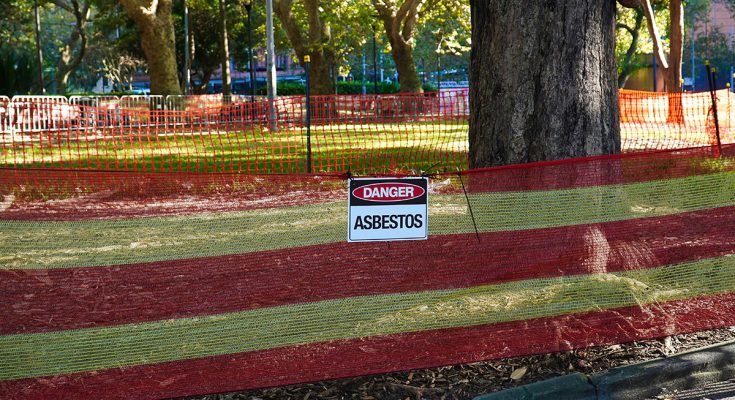What is Asbestosis?
Asbestosis is a lung disease that happens when someone breathes in asbestos fibers. These tiny fibers can get stuck in the lungs and cause scarring. Over time, this scarring makes it hard to breathe and can lead to serious health problems.
Causes of Asbestosis
The main cause of asbestosis is exposure to asbestos. This material was once used in many industries, like construction and shipbuilding. People who worked in these fields are at a higher risk. Even family members of these workers can be affected if they were exposed to asbestos dust brought home on clothes.
Symptoms and Diagnosis
Symptoms of asbestosis can take years to show up. Common signs include shortness of breath, a persistent cough, and chest pain. To diagnose asbestosis, doctors usually start with a physical exam and ask about the patient’s work history. They may also use imaging tests like X-rays or CT scans, and sometimes a lung function test to see how well the lungs are working.
Long-Term Health Effects of Asbestosis
Respiratory Complications
Asbestosis primarily affects the lungs, leading to serious breathing problems. Over time, the lung tissue becomes scarred, making it hard to breathe. Patients often experience shortness of breath, a persistent cough, and chest pain. These symptoms can worsen, especially if the person continues to be exposed to asbestos.
Cardiovascular Issues
The strain on the lungs can also impact the heart. As the lungs struggle to get enough oxygen, the heart has to work harder to pump blood. This can lead to high blood pressure in the lungs, known as pulmonary hypertension, and eventually heart failure.
Impact on Quality of Life
Living with asbestosis can significantly affect a person’s daily life. Simple activities like walking or climbing stairs can become challenging. The constant struggle to breathe can lead to fatigue and a decreased ability to enjoy everyday activities. Additionally, the stress and anxiety of managing a chronic illness can take a toll on mental health.
Medical Management of Asbestosis
Medications and Treatments
Managing asbestosis often involves a combination of medications and treatments aimed at alleviating symptoms and improving quality of life. Doctors may prescribe bronchodilators to help open airways, making it easier to breathe. In some cases, oxygen therapy is recommended to ensure the body gets enough oxygen. Additionally, vaccines like the flu shot and pneumococcal vaccine are important to prevent respiratory infections.
Pulmonary Rehabilitation
Pulmonary rehabilitation is a key component in managing asbestosis. This program typically includes exercise training, nutritional advice, and education about the disease. The goal is to help patients improve their physical fitness and manage their symptoms better. Patients often work with a team of healthcare providers, including doctors, nurses, and physical therapists, to create a personalized plan.
Monitoring and Follow-Up Care
Regular monitoring and follow-up care are crucial for individuals with asbestosis. This usually involves routine check-ups with a healthcare provider to track the progression of the disease and adjust treatments as needed. Patients may undergo periodic lung function tests and imaging studies to assess their condition. Staying in close contact with healthcare providers helps in managing symptoms and catching any complications early.
Lifestyle Adjustments for Asbestosis Patients
Diet and Nutrition
Eating a balanced diet is crucial for those with asbestosis. A diet rich in fruits, vegetables, lean proteins, and whole grains can help boost the immune system and maintain overall health. Patients should avoid processed foods and sugary drinks. Staying hydrated is also important, so drinking plenty of water throughout the day is recommended.
Exercise and Physical Activity
Regular physical activity can help improve lung function and overall well-being. Patients should aim for low-impact exercises like walking, swimming, or yoga. It’s important to start slowly and gradually increase the intensity. Consulting with a healthcare provider before starting any new exercise routine is essential to ensure safety.
Smoking Cessation
Quitting smoking is one of the most important steps for managing asbestosis. Smoking can worsen lung damage and increase the risk of complications. There are various resources available to help patients quit, including counseling, support groups, and medications. It’s never too late to stop smoking, and doing so can significantly improve health outcomes.
Legal and Financial Considerations
Workers’ Compensation
For those diagnosed with asbestosis due to workplace exposure, workers’ compensation can be a vital resource. This program helps cover medical expenses and lost wages. It’s important to report the illness to your employer as soon as possible and file a claim. Keep all medical records and documentation handy to support your case.
Legal Rights and Resources
Patients with asbestosis have legal rights that can help them seek justice and compensation. Consulting with a lawyer who specializes in asbestos-related cases can provide guidance. They can help you understand your rights and the steps needed to file a lawsuit. Many law firms offer free consultations, so it’s worth exploring your options.
Financial Assistance Programs
Dealing with asbestosis can be financially draining. There are various financial assistance programs available to help patients manage costs. These can include government aid, non-profit organizations, and community resources. Researching and applying for these programs can provide much-needed financial relief.
Support Systems and Resources
Patient Support Groups
For those living with asbestosis, joining a patient support group can be very helpful. These groups offer a place to share experiences, get advice, and find comfort from others who understand what you’re going through. They can also provide information about the latest treatments and ways to manage symptoms.
Mental Health Resources
Dealing with a chronic illness like asbestosis can be tough on your mental health. It’s important to seek help if you’re feeling overwhelmed, anxious, or depressed. Mental health resources, such as counseling and therapy, can offer support and strategies to cope with the emotional challenges of the disease.
Educational Materials and Programs
Staying informed about asbestosis is crucial for managing the condition effectively. Educational materials and programs can provide valuable information about the disease, treatment options, and lifestyle changes that can improve quality of life. These resources can be found through healthcare providers, online platforms, and community organizations.
External Links




